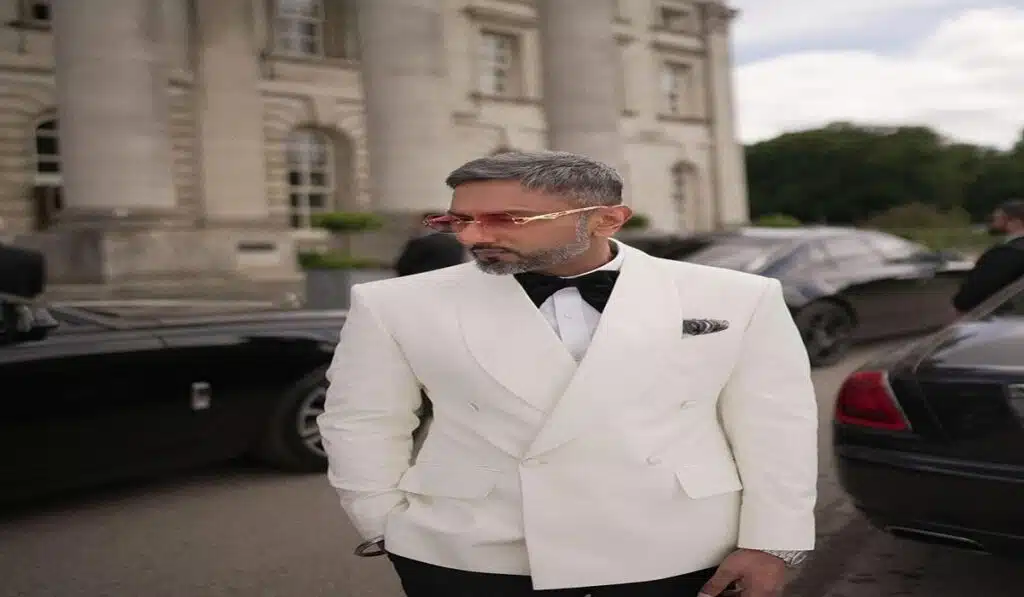Kamala Harris and Donald Trump squared off in Philadelphia, marking a pivotal moment in the 2024 election race. Here’s a breakdown of their final arguments and key points from the debate.
Divergent Closing Arguments
In their final pitches, Harris and Trump took markedly different approaches. Harris focused on a forward-looking vision, stressing her commitment to supporting the middle class. Trump, on the other hand, criticized Harris for her perceived inaction, repeatedly questioning why she hadn’t implemented her plans.
Harris Defends Her Gun Ownership
In response to Trump’s claim that she aims to confiscate firearms, Harris revealed her own status as a gun owner. “Tim Walz and I are both gun owners. We’re not taking anybody’s guns away,” she declared. Harris first shared this information in 2019, explaining her ownership was driven by personal safety concerns from her days as a prosecutor.
Affordable Care Act Gains Popularity
Trump’s attacks on the Affordable Care Act (ACA) face a challenge as the law’s popularity has increased since its 2010 inception. A recent KFF Health Tracking Poll shows 62% of U.S. adults view the ACA favorably, up from 46% in 2010. AP-NORC polling also indicates that Harris holds an edge over Trump on healthcare issues, with 46% of Americans trusting her more compared to 31% for Trump.
Trump’s Elusive Healthcare Plan
Despite years of promises to present a superior healthcare plan, Trump struggled to detail his strategy during the debate. “I have concepts of a plan,” he said, but offered no specifics, adding that he would reveal the details “in the not-so-distant future,” a promise he has made before.
Trump Questions Harris’ Race, Claims Indifference
Trump raised questions about Harris’ racial identity but insisted he “does not care” how she identifies. “I read where she was not Black, … and then I read that she was Black,” he said. Harris labeled Trump’s approach as a “tragedy,” accusing him of using race to sow division.
Uplifting vs. Belittling
Harris positioned herself as a positive force compared to Trump’s negative approach. She criticized Trump for “belittling” and “name-calling,” pledging to bring a “sense of optimism” if elected. However, she also delivered sharp critiques of Trump’s record and his false claims about her.
Trump’s Past Racial Divisions
Harris highlighted Trump’s history of racial division, referencing his call for the death penalty for the “Central Park Five,” who were later exonerated. She also mentioned his company’s past issues with racial discrimination and his promotion of false “birther” theories about President Obama.
The Fine Line of Personal Attacks
Trump’s personal attacks on Harris must be carefully calibrated. A Pew Research Center poll indicates that about two-thirds of voters feel Trump has been “too personally critical” of Harris. Conversely, 45% of voters believe Harris has been overly critical of Trump. Notably, Trump’s supporters are more likely to view his criticism of Harris as excessive compared to Harris’ supporters’ views on her criticism of Trump.
Debate Timing and Audience Absence
Both candidates frequently exceeded their allotted time, with Trump more often ignoring the time constraints. The absence of a live audience allowed for uninterrupted discussion and more extensive responses to questions from the ABC News moderators.
Trump’s NATO Skepticism
Trump reiterated his skepticism about NATO, criticizing its members for not meeting financial commitments and suggesting they owe “dues” to the alliance. He also indicated he would not defend NATO countries against Russian aggression and would encourage Russia to act freely.
Trump’s Peace Deal Claims
Trump’s assertion that he could broker a peace deal between Russia and Ukraine before taking office raises concerns. This effort could conflict with U.S. foreign policy traditions and potentially violate the Logan Act, which restricts private citizens from conducting foreign diplomacy.
Trump’s Doubts on Official Numbers
Trump has questioned various official government measures, including job creation figures and crime statistics. He has also repeated false claims about election fraud and dismissed death tolls from the Ukraine conflict as “fake numbers.”
Ukraine Conflict Stance
When asked about Ukraine’s war against Russia, Trump avoided taking sides, expressing a desire for the conflict to end but not specifying a preference between the two nations. This response may resonate differently given his previous friendly stance towards Vladimir Putin.
Israel-Hamas War Discussion
Harris affirmed Israel’s right to defend itself and supported a “two-state solution” in response to the Israel-Hamas conflict. Trump claimed the war would not have happened under his presidency and accused Harris of “hating Israel,” a charge she rejected, accusing Trump of attempting to divide and distract from his own national security failures.
Trump’s Persistent False Claims
Trump continues to falsely claim he won the 2020 election, despite evidence and official reviews affirming the election’s fairness. He has also claimed his acknowledgment of losing was meant sarcastically, despite past statements suggesting otherwise.
Discrepancies in 2020 Protest Prosecutions
Trump criticized the prosecution of 2020 protestors, suggesting they were not held accountable. However, a 2021 Associated Press review revealed that numerous defendants were convicted and sentenced for crimes committed during the protests.
Harris Shifts Focus from January 6 to Appeal for Votes
As Trump continued to downplay his involvement in the January 6, 2021, Capitol attack, Harris used the opportunity to appeal directly to a critical segment of the electorate: Republicans disillusioned by the violence and Trump’s role in it.
A Direct Appeal to Disaffected Republicans
Looking straight into the camera, Harris made a clear pitch to voters who “stand for rule of law” and seek to “end the chaos.” Although she didn’t explicitly mention “Republicans,” it was evident that this message was directed at those who might have been turned off by Trump’s actions. Such voters played a crucial role in Biden’s narrow victories in Arizona and Georgia and could be pivotal in upcoming battleground states.
Trump Minimizes His Role in January 6 Riot
Trump once again minimized his role in the Capitol riot, claiming his only involvement was giving a speech. Despite his calls for his supporters to “fight like hell” and his encouragement for them to protest, Trump insisted he had “nothing to do with that” event beyond the speech.
Future Vision vs. Present Criticism
Throughout the debate, Harris emphasized a forward-looking vision, urging voters to “turn the page” and “chart a course to the future.” Trump, however, reminded her of her current role as vice president, suggesting she should address pressing issues like border security instead of debating him.
Interruptions Despite Muted Mics
Despite debates over whether their mics should be muted when not speaking, both Trump and Harris frequently interrupted each other. Harris called out Biden’s lack of a middle-class plan, prompting Trump to dismiss her remarks as a “soundbite.” Later, when Trump criticized U.S. semiconductor production, Harris countered, “That’s not true,” leading to several tense exchanges.
Trump’s Over-the-Top Rhetoric
Trump continued his pattern of extreme rhetoric, labeling Harris a “Marxist” and claiming the Biden administration’s policies have “destroyed our country.” While Harris maintained a composed demeanor—alternating between smiles, head shakes, and looks of confusion—Trump’s hyperbolic attacks seemed tailored to rally his base rather than appeal to the broader electorate.
Harris Calls Out Trump’s Legal Issues
In response to Trump’s comments on crime rates, Harris highlighted his own legal troubles. “This is so rich coming from someone who has been prosecuted for national security crimes, economic crimes, election interference, and found liable for sexual assault,” she said, noting his upcoming criminal sentencing in November. Trump, in turn, accused Harris and Biden of “weaponizing” the criminal justice system against him, a claim he maintains despite his conviction for falsifying business records related to hush money payments.
Trump’s Misleading Statements on Legal Cases
Trump made several false or misleading statements regarding his legal issues. He claimed a “complete and total victory” in a classified documents case, which was dismissed not due to his innocence but because of procedural issues. Similarly, he inaccurately stated that Biden was found “essentially guilty” in a classified documents investigation, while the prosecutor concluded there was insufficient evidence for criminal charges.
Highlighting Trump’s Legal Troubles
Harris eventually brought up Trump’s legal woes, including his felony convictions, pending indictments, and civil liability for sexual assault. This exchange marked a significant moment in the debate, as Trump defended his legal issues by asserting he would “win on appeal,” providing a stark contrast to Harris’s focus on law and order.
False Rumors and Crime Statistics
Donald Trump promoted a bizarre and unfounded rumor that Haitian immigrants in Ohio are abducting and eating pets. This claim, which lacks any credible evidence, has been firmly denied by local authorities in Ohio.
Despite Trump’s assertions of a crime wave under the Biden administration, FBI data paints a different picture. The statistics show a decline in violent crime since the pandemic’s peak, with a 6% drop in violent crime and a 13% reduction in murders during the last quarter of 2023. New data from early 2024 shows a 15% decrease in violent crime rates compared to the previous year. However, experts warn that these early 2024 figures might overstate the true reduction.
Afghanistan Withdrawal and Blame Game
Trump has sharply criticized the Biden administration for the chaotic withdrawal from Afghanistan, yet he himself shares significant responsibility. The main U.S. government watchdog attributes the collapse of Afghan forces and the Taliban’s takeover in part to Trump’s 2020 agreement with the Taliban, which set the stage for the withdrawal.
Harris Highlights Republican Endorsements
Kamala Harris has leveraged endorsements from former Trump administration officials to underscore a clear choice in the upcoming election. Trump, however, dismissed these endorsements, noting that he had fired many of those officials and accusing the Biden-Harris administration of failing to fire anyone.
Student Loan Forgiveness Debate
Trump has criticized Biden and Harris for not fully delivering on student loan forgiveness. While some relief has been provided, parts of the plan have been stalled by Republican opposition and legal challenges. The Supreme Court recently declined to lift an injunction on one of the forgiveness plans.
Economic and Immigration Policies
Harris has compared herself favorably to Trump on economic issues, emphasizing her middle-class background and criticizing Trump’s economic proposals. She has also critiqued Trump’s tariffs, which many economists believe would raise costs for middle-class families.
Trump, on the other hand, has downplayed his proposed tariffs and criticized Harris for not having a clear economic plan. He has also pivoted to immigration issues, describing a surge of people entering the country, though this characterization has been met with skepticism.
Abortion and IVF Policies
Trump has reiterated his support for IVF access, contrasting his stance with the broader Republican opposition to reproductive rights. He has also expressed a position on a potential national abortion ban, suggesting it will not be necessary as it is unlikely to pass Congress.
Trump has continued to use misleading rhetoric about late-term abortions, despite the fact that no state permits infanticide, and abortions later in pregnancy are rare and typically due to serious complications.
Harris vs. Trump on Abortion Policy
Recent polling shows that Harris has an advantage over Trump on abortion policy, with 51% of Americans trusting her more on this issue compared to 27% for Trump. The issue of abortion remains a contentious topic and a significant factor in the upcoming election.
Debate Focus: Economy and Immigration
The debate’s opening question centered on the economy, which remains a top concern for many voters. Harris emphasized her focus on creating an “opportunity economy,” while Trump highlighted his plans for tariffs and shifted focus to immigration.
Overall, the debate showcased stark contrasts between Harris and Trump on a range of issues, from crime and immigration to abortion and economic policy.
Source:
Also Read: Former President Trump Mentions Ohio City in Immigration Debate


